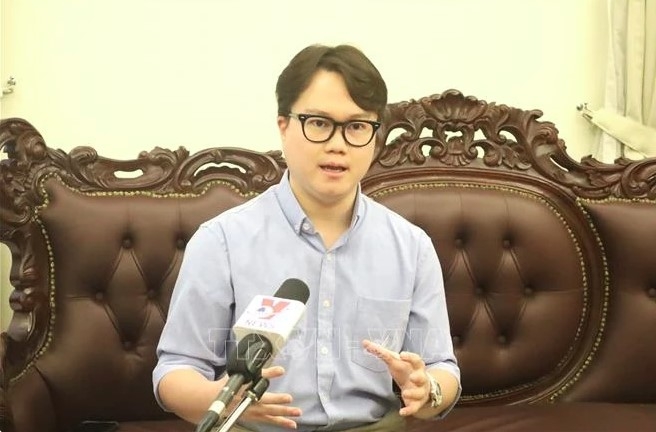Vietnam actively participates in UN peacekeeping activities
Malaysian history and international politics researcher Enzo Sim Hong Jun from Penang Institute has emphasised the Vietnam People’s Army (VPA)'s contributions to the national building and safeguarding as well as to UN peacekeeping activities.

During an interview with the Vietnam News Agency on the occasion of the 80th founding anniversary of the VPA (December 22, 1944 - 2024) and the 35th anniversary of the All People’s Defence Festival (December 22, 1989 - 2024), the researcher affirmed the important role of the Communist Party of Vietnam in the struggle for national independence, initially against French colonialism and later against American imperialism.
Looking back Vietnam’s historical process to gain national independence, Enzo said that President Ho Chi Minh made the crucial decision to establish the Vietnam Armed Propaganda Unit for National Liberation, the predecessor of the Vietnam People's Army on December 22, 1944. The term "People's Army," chosen by President Ho Chi Minh, signifies an army "from the people and for the people".
According to the researcher, although President Ho Chi Minh did not witness the unification of Vietnam, his spirit and valuable lessons continued to live on, guiding the VPA in its fight against the US imperialism.
He affirmed that the Communist Party of Vietnam and President Ho Chi Minh played key roles in the fight for Vietnam's independence.
Regarding the role and contributions of the VPA to humanitarian duties and UN peacekeeping missions, Enzo assessed the VPA plays an important role in restoring peace and order in some of the most unstable regions in the world, including Abyei, South Sudan, and the Central African Republic, as well as in the UN Department of Peacekeeping Operations in New York.
Enzo highlighted the remarkable fact that over 20% of Vietnam's peacekeepers are women. The participation of women in UN peacekeeping activities is essential, as female soldiers can serve as role models and strong advocates for local women who have suffered from violence and conflict. Additionally, the presence of women allows peacekeeping operations to better engage with local communities for distributing UN humanitarian aid.
He emphasised that in the fragile peace context of these regions, as one of the main contributors to UN peacekeeping missions, Vietnam has become a model for the international community in contributing more to international humanitarian missions and serves as a testament to how a developing country can support less developed nations in "sowing seeds of peace”.


